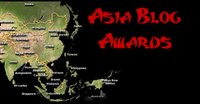
_______________________________________________
Irfan Husain’s latest piece is worth poring over:
IN the mid-1950s, ‘The Seven-Year Itch’ was a huge hit. Starring the unforgettably delectable Marilyn Monroe, the film revolved around the theme of marital infidelity. The title comes from the idea that after seven years of marriage, the eye wanders, and partners get bored of seeing the same face on the pillow next to each other every morning.
Perhaps we do not see Musharraf quite so intimately, but for many Pakistanis, the TV screen is close enough. The big mistake people in power make is that they develop a taste for the limelight, and soon this hunger for publicity becomes an addiction that has to be fed by daily newspaper headlines, TV interviews, and in Musharraf’s case, book launches. But while they revel in this hype and hoopla, pity their poor audiences: blitzed by this self-serving propaganda, who can blame them for getting fed up after a time? And the Lord knows seven years is time enough for even Musharraf’s most ardent fans to feel bored.
Although I oppose military takeovers on principle, I must admit that I cautiously welcomed Musharraf’s coup seven years ago. My reason was simple: had he not overthrown Nawaz Sharif, the ruling Muslim League would have secured a majority in the Senate elections due the following March. Once the upper house had been won, Nawaz Sharif was determined to carry out his avowed threat of making Shariah the law of the land.
A number of Pakistanis, including this one, were concerned that given the different schools of Islamic thought active in the country, this legislation would be divisive to the point of civil war. Hence I considered a short military intervention to be the lesser of the two evils.
But as I should have known, military interventions in Pakistan are never short. The pattern has been for coup-makers to convince themselves that they are indispensable, and then bend all their energies and resources to hang on in power in the belief that their departure would spell disaster for the country. But ultimately, they all leave, one way or another, and the nation staggers on, weaker for their extended presence. Another thing we have learned is that generals last longer in power than politicians. Not because of their superior performance, but because they have the army behind them. And lending them a fig- leaf are the motley crew of political hacks who could not get into power through elections.
Beyond the obvious weakening of political institutions, what else do Musharraf’s seven years in power teach us? For starters, even for a military dictator, there are strict limits to power. As we have seen time and again, Musharraf has been forced to retreat where a politician might well have succeeded. So although I have few doubts about his good intentions on a number of issues, his ability to follow through is decidedly shaky.
Take his praiseworthy desire to dilute the more vicious aspects of the Hudood Ordinance. Like any decent person, he was motivated by the shocking injustice of this Zia-inspired, anti- woman law. Indeed, most of the civilised world is appalled by this unique piece of legislation. Although he was supported by the PPP and the MQM in his effort to amend the law through a bill in parliament, he was thwarted by both the MMA and ultimately, by his own faction of the PML. While the opposition from the clerics was expected, the stab in the back from his own creation must have penetrated even his Kevlar flak jacket. But he has had to put up with this double-cross because he has no alternatives, and the opportunistic Muslim League members know it.
Or take his oft-repeated decision to build the controversial Kalabagh dam. Here, after a major campaign on every front, he simply could not force the smaller provinces to go along with Punjab on the issue. This is despite the fact that Sindh is being run by a coalition that reached power only thanks to Musharraf. Nevertheless, they said ‘no’ when it came to this highly divisive issue because it would have been political suicide for them to have agreed. So when push came to shove, Musharraf was unable to convince the smaller provinces to drop their deep mistrust of Punjab.
His loudly proclaimed concept of ‘enlightened moderation’ lies in tatters, hacked to bits by the mullahs of the MMA whose support he has courted so assiduously. Part of this stillborn policy was the registration of madressahs, and the introduction of modern subjects there. One growl from the mullahs was enough to lay this ambition to rest. Then there was the debacle over the decision to drop the religion column from the new machine- readable passports. Even this innocuous step to bring our travel documents in line with international norms was blocked by our religious parties, and Musharraf had to back down yet again.
On the international front, Musharraf has had limited success, despite his enhanced profile after 9/11. Although he made a U-turn on Pakistan’s pro-Taliban policy, he continues to be pressed to do more on the Afghan border. And more than ever, he is under pressure to rein in the ISI. In spite of his efforts to present a progressive view of Pakistan to the rest of the world, he is frequently frustrated by his own party, courts and intelligence agencies.
The problem he faces is a common one for military dictators around the world. Lacking legitimacy, they make deals with groups and parties to broaden their base beyond GHQ. But as they face resistance from legitimate political forces, they squander their time, energy and the little moral authority they possess to hang on to power. In Musharraf’s case, he has had to curry favour with fundamentalists to win their support. He cannot then take on their militant wings with any conviction or credibility. It is this politics of expediency that neuters the most well-meaning dictator.
One major aspect of the seven-year itch is the intractable nature of problems faced by developing countries like Pakistan. Leaders, whether elected or not, simply cannot meet the rising aspirations of a growing population. So they are forced to repeat promises they cannot keep, and the rest of us can only sit back and yawn each time they appear on TV to offer us pie in the sky tomorrow.
Pakistan












